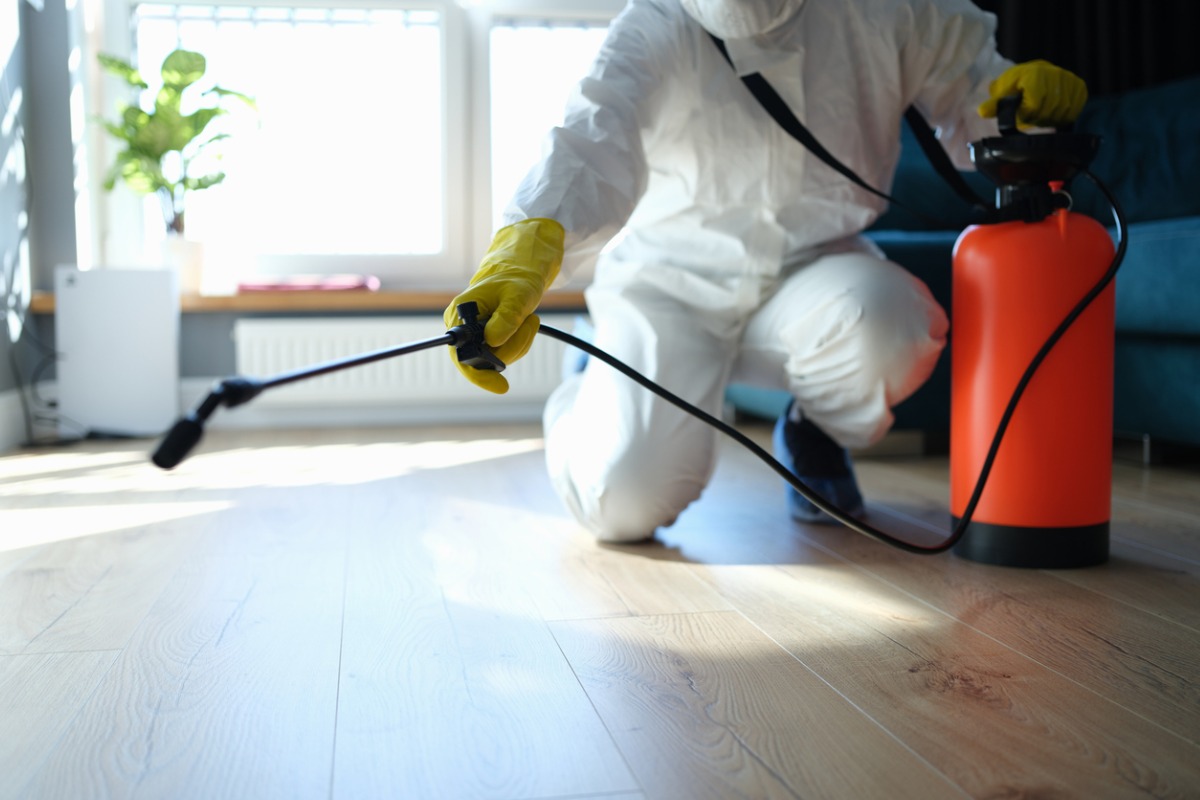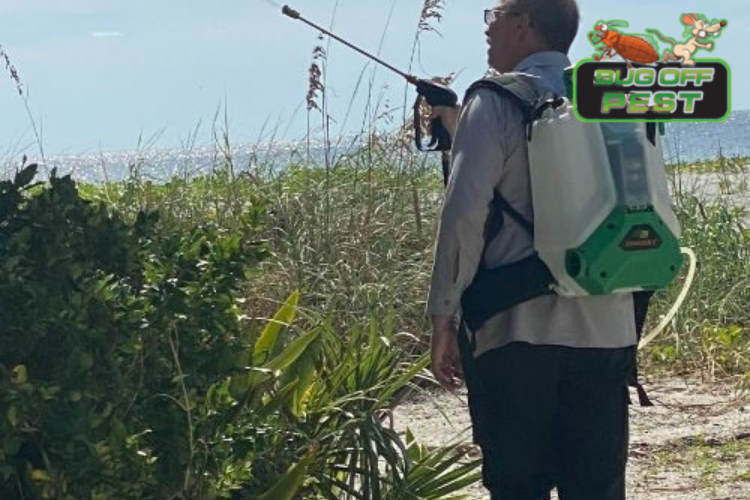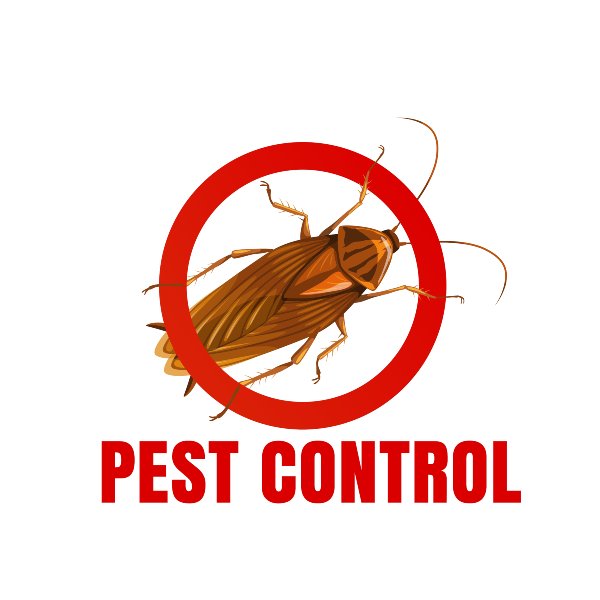Reveal the Value of Bug Control in Preserving a Healthy And Balanced Atmosphere and Treatment Techniques

The Duty of Insects in Environments
Bugs, often watched exclusively as problems, play a complex function in ecosystems that is essential for preserving ecological equilibrium. They contribute substantially to various eco-friendly processes, including pollination, vitamins and mineral cycling, and bug control. Numerous insect varieties, such as bees and butterflies, are necessary pollinators for a large array of plants, which in turn supports biodiversity and food manufacturing.
In addition, insects function as victim for various killers, producing an essential link in food internet. This interdependence makes certain the survival of various types and assists manage populations within environments (Termite treatment Port Charlotte). In addition, decomposer insects, such as specific beetles and fungis, contribute in breaking down raw material, hence improving soil and helping with nutrition recycling.
Alternatively, while parasites can be beneficial, their overpopulation or invasion into non-native environments may disrupt these ecological functions. This complexity highlights the relevance of understanding pest dynamics, as effective parasite monitoring strategies should think about both their environmental functions and prospective impacts on human activities. Balancing pest existence while decreasing harm is important for preserving the integrity of ecosystems and making certain farming efficiency.
Wellness Threats Linked With Insects
The presence of pests in numerous atmospheres extends past their eco-friendly duties, as they likewise position substantial health and wellness dangers to humans and pets. Several insects, including parasites, insects, and rats, are providers of conditions that can have severe health effects. For instance, rats are known to send hantavirus and leptospirosis, both of which can result in extreme breathing and kidney problems, specifically.
Pests such as mosquitoes and ticks are well known for spreading vector-borne diseases like malaria, dengue fever, and Lyme disease. These health problems can lead to high morbidity and death rates, specifically in susceptible populaces. In addition, parasites like cockroaches and insects can worsen allergic reactions and bronchial asthma, contributing to breathing issues in people, specifically those with pre-existing conditions.
Moreover, the visibility of bugs can lead to psychological stress and pain, influencing overall well-being. Contamination of food and surfaces by bug droppings and stays can bring about foodborne illnesses, highlighting the importance of keeping hygienic problems. Therefore, understanding the health and wellness threats associated with insects is vital in recognizing the necessity of effective insect administration methods to safeguard human and animal health.

Advantages of Effective Bug Control
Effective pest control is essential for keeping a risk-free and healthy and balanced environment, as it consistently minimizes the countless threats connected with insect problems. One of the key advantages of effective bug administration is the reduction of wellness dangers.
Furthermore, effective pest control safeguards building and frameworks from damage. Many check my reference pests, like termites and woodworker ants, can trigger comprehensive structural damages that may call for expensive repair services. By proactively handling these infestations, property owners and organizations can protect their financial investments.
Another substantial advantage is the enhancement of general lifestyle. A pest-free atmosphere adds to mental wellness and lowers tension linked with infestations. Efficient bug control cultivates a safer environment for kids and pets, ensuring that homes continue to be sanctuaries free from damaging chemicals and disease-causing microorganisms.
Usual Insect Control Methods

In the realm of insect management, numerous strategies are utilized to fight infestations effectively. These techniques can be generally categorized right into three main strategies: social, mechanical, and chemical controls.
Cultural control entails customizing practices to lower bug reproduction, facility, and survival. This may consist of crop rotation, appropriate sanitation, and environment manipulation, which collectively create an environment much less for pest expansion.
Mechanical control employs physical techniques to eliminate bugs (Termite treatment Port Charlotte). Strategies such as catches, vacuum cleaners, and barriers are typically utilized to straight get rid of pests from an area. This technique is specifically effective for handling rats and insects without the usage of hazardous chemicals
Chemical control includes the application of pesticides to handle parasites. These materials can be classified into pesticides, fungicides, and herbicides, each targeting certain kinds of parasites. It is crucial to use these chemicals judiciously, sticking to safety and security standards and guidelines to reduce potential harm to non-target species and the environment.
Each pest control technique has its limitations and advantages, and frequently, an integrated method combining multiple approaches generates the best lead to maintaining a pest-free setting.
Sustainable Insect Monitoring Practices
Lasting parasite monitoring practices incorporate a series of strategies created to reduce environmental impact while efficiently controlling parasite see this site populaces. These practices focus on the usage of eco pleasant techniques over chemical pesticides, thereby reducing the threat of damage to non-target species, consisting of helpful insects, wild animals, and people.
Integrated Insect Management (IPM) is a keystone of sustainable techniques, integrating biological, social, mechanical, and chemical strategies to take care of insects. For instance, organic control entails presenting natural killers or parasites to subdue insect populaces. Social practices, such as plant rotation and polyculture, interrupt pest life cycles and improve ecosystem durability.
Mechanical techniques, such as obstacles or traps, can successfully prevent insect accessibility without chemical intervention. Furthermore, keeping healthy and check out this site balanced communities via proper soil monitoring, plant health, and biodiversity can naturally alleviate parasite issues.
Education and understanding are essential components, empowering areas and individuals to recognize insect dangers early and apply preventive steps. Termite treatment Port Charlotte. By promoting an alternative strategy that balances pest control with environmental stability, sustainable bug administration techniques not just shield plants and frameworks but additionally add to a healthier environment for future generations
Final Thought

Recognizing the wellness dangers associated with pests is crucial in identifying the requirement of efficient pest management strategies to guard animal and human health and wellness.
Effective pest control is crucial for preserving a healthy and secure setting, as it constantly reduces the various risks linked with insect problems.Integrated Bug Management (IPM) is a keystone of sustainable techniques, integrating organic, cultural, mechanical, and chemical tactics to handle parasites. By understanding the duty of pests, identifying involved wellness risks, and using diverse therapy strategies, a sustainable strategy to pest management can be attained. Integrated Insect Management (IPM) highlights an all natural approach that minimizes harm to helpful organisms while efficiently regulating pest populations.